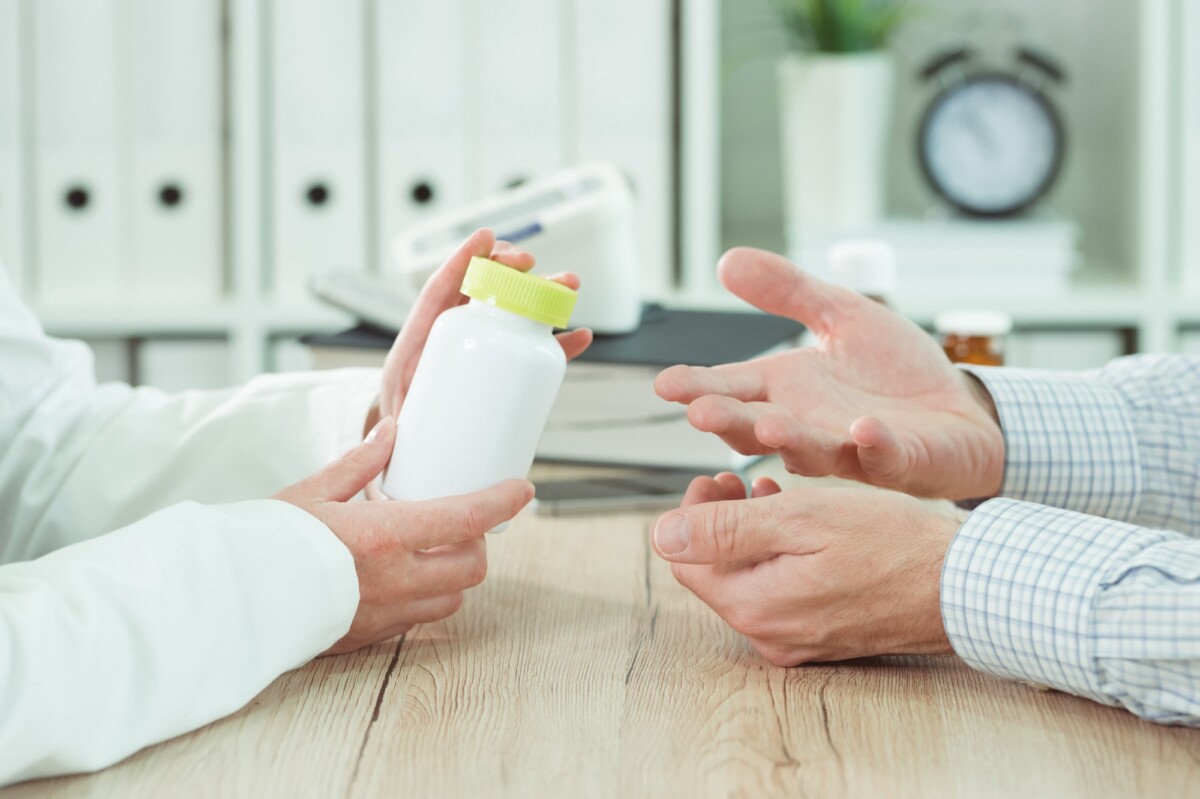Unlocking the Benefits: Navigating the Intersection of Medicare and Durable Medical Equipment
Understanding the symbiotic relationship between Medicare and durable medical equipment (DME) is crucial in the ever-evolving healthcare landscape. This article explores the intricate dynamics of this connection, shedding light on how individuals can leverage Medicare benefits to access essential, durable medical equipment, ensuring a seamless and cost-effective healthcare experience.
The Significance of Medicare in Healthcare:
Medicare is a government funded program that is necessary to give Americans 65 years of age and older, as well as some younger individuals with disabilities, access to health care. The demand for complete healthcare services, including durable medical equipment, is rising with the aging population.
Defining Durable Medical Equipment (DME):
DME encompasses a wide array of specialized tools and devices designed to aid individuals in managing medical conditions and enhancing their overall quality of life. Items such as wheelchairs, oxygen equipment, and hospital beds fall under the category of DME. Understanding the integration of Medicare with DME becomes essential for those seeking cost-effective solutions for their healthcare needs.
Navigating the Medicare and DME Partnership:
To unlock the full potential of Medicare benefits in acquiring durable medical equipment, individuals must be aware of the coverage options available. Medicare Part B covers outpatient care and medical supplies and is particularly relevant to those seeking assistance with DME expenses. From prosthetic limbs to home oxygen therapy, this facet of Medicare is vital in ensuring individuals have access to necessary equipment.
The Role of Physicians in the Prescription Process:
Physicians play a crucial role in the Medicare-DME nexus. Medicare coverage for durable medical equipment frequently requires a prescription from an approved healthcare professional. This prescription is documentation of medical necessity and a gateway for individuals to explore the expansive realm of DME options available under Medicare.
Understanding the Scope of Medicare Part B Coverage:
Medicare Part B coverage extends to a diverse range of durable medical equipment. Truly comprehending the extent of this coverage empowers individuals to make well-informed choices concerning their healthcare requirements. From mobility aids like walkers and scooters to diabetic supplies, the breadth of Medicare Part B ensures that a wide array of medical equipment is within reach.
Exploring Medicare Advantage Plans for Enhanced DME Coverage:
While traditional Medicare covers durable medical equipment under Part B, individuals may explore Medicare Advantage Plans (Part C) for additional benefits. These private insurance company-provided plans frequently offer expanded DME coverage, granting policyholders access to a wider range of medical equipment choices.
Key Considerations for DME Beneficiaries:
For individuals navigating the intersection of Medicare and durable medical equipment, several key considerations can optimize their healthcare experience. These include understanding coverage limitations, exploring supplemental insurance options, and staying informed about updates and changes in Medicare policies related to DME.
The Financial Aspect:
While Medicare alleviates a significant portion of the financial burden associated with durable medical equipment, it is essential to be aware of potential out-of-pocket expenses. Co-payments, deductibles, and coverage limits are factors that individuals should consider when planning for their DME needs under Medicare.
Challenges and Solutions in the Medicare-DME Landscape:
Despite the evident benefits of Medicare coverage for durable medical equipment, challenges exist within this landscape. Limited coverage for certain specialized equipment and the intricate process of obtaining prescriptions can pose hurdles for individuals. However, proactive communication with healthcare providers and thorough research on available options can help overcome these challenges.
Case Studies: Realizing the Impact of Medicare on DME Accessibility:
Illustrating the real-world impact of Medicare on durable medical equipment accessibility, this section delves into case studies that highlight individuals who have successfully navigated the system to meet their specific healthcare needs. These stories provide valuable insights and inspiration for others seeking to leverage their Medicare benefits for DME.
Looking Ahead: Anticipating Future Trends and Developments:
As healthcare evolves, it is crucial to anticipate future trends and developments in the intersection of Medicare and durable medical equipment. The environment will probably alter due to aging populations, healthcare policy changes, and technological advancements, affecting how people can obtain and use DME under Medicare.
Exploring Technological Innovations in Durable Medical Equipment:
The landscape of durable medical equipment is witnessing a surge in technological innovations. Technology is reshaping the DME sector, from smart prosthetics to remote monitoring devices, enhancing functionality and user experience. As Medicare adapts to these advancements, beneficiaries can anticipate a broader range of technologically advanced options. Keeping abreast of these innovations ensures that individuals not only meet their immediate needs but also position themselves to benefit from cutting-edge solutions that may become integral to healthcare in the future.
The Role of Accredited Suppliers in the DME Process:
Navigating the Medicare-DME landscape involves collaboration with accredited suppliers. These suppliers are crucial in ensuring that beneficiaries receive high-quality, durable, Medicare-compliant medical equipment. Understanding the importance of choosing accredited suppliers and being aware of the criteria that define them empowers individuals to make informed decisions, fostering a seamless and efficient process in acquiring their needed equipment.
Community Resources and Support Networks:
Beyond the Medicare framework, community resources and support networks can be invaluable in accessing durable medical equipment. Local organizations, support groups, and nonprofits often play a crucial role in assisting individuals with information, resources, and financial aid. Exploring these community-based avenues can provide additional support layers, supplementing Medicare benefits and ensuring a holistic approach to healthcare.
The Environmental Impact of Durable Medical Equipment:
As the world becomes more conscious of environmental sustainability, the impact of durable medical equipment on the environment is gaining attention. Manufacturers and healthcare providers are increasingly exploring eco-friendly options. Understanding the environmental implications of DME choices allows beneficiaries to align their healthcare decisions with broader sustainability goals, contributing to a more environmentally responsible approach to healthcare.
Telehealth and its Influence on DME Accessibility:
The rise of telehealth services has altered the dynamics of healthcare delivery. This shift has implications for durable medical equipment as well. Telehealth consultations may streamline the process of obtaining prescriptions and recommendations for DME. Additionally, remote monitoring devices that connect to telehealth platforms are becoming integral in managing chronic conditions. Exploring the intersection of telehealth and durable medical equipment ensures that individuals are poised to benefit from the convenience and accessibility offered by these technological integrations.
Frequently Asked Questions (FAQs):
1. Q: Is durable medical equipment covered under all parts of Medicare?
A: Durable medical equipment is primarily covered under Medicare Part B, which includes outpatient care and medical supplies. Reviewing your specific Medicare plan and coverage details is essential to understand the extent of DME coverage.
2. Q: How can I find accredited suppliers for durable medical equipment?
A: The Medicare website lists suppliers who meet the accreditation standards. Additionally, healthcare providers and local support organizations can offer recommendations for reputable and accredited DME suppliers.
3. Q: What should I do if I face challenges obtaining a prescription for DME?
A: If you encounter difficulties obtaining a prescription, communicate openly with your healthcare provider. Discuss your specific needs and inquire about alternative options or specialists who can assess your situation and provide the necessary documentation.
4. Q: Are there financial assistance programs for durable medical equipment beyond Medicare?
A: There are various financial assistance programs, both at the federal and local levels and through nonprofit organizations. Examining these possibilities can assist in reducing the costs related to durable medical equipment.
5. Q: How often does Medicare review and update its policies regarding DME coverage?
A: Medicare regularly reviews and updates its policies to adapt to healthcare practices and technology changes. It’s advisable to stay informed about policy updates through official Medicare communications, healthcare providers, or the Medicare website to ensure awareness of any changes that may impact DME coverage.
Conclusion
As we embrace the ongoing evolution of healthcare, the integration of Medicare and durable medical equipment stands as a testament to the commitment to enhancing the quality of life for individuals. Beneficiaries can navigate this intersection by embracing technological innovations, collaborating with accredited suppliers, tapping into community resources, and considering the environmental impact of healthcare choices. The future promises further advancements, and individuals who remain informed and proactive will continue to unlock the full spectrum of benefits at the nexus of Medicare and durable medical equipment. The quest for optimal health becomes a collaborative effort in this dynamic environment, where healthcare intersects with technology and community assistance, guaranteeing that people may not only take care of their immediate needs but also prosper in the rapidly changing healthcare industry.
Visit our website NewMedicare.com to learn more.





